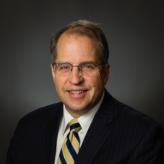U.S. Supreme Court says Mojave Cross veterans’ memorial can stay
WASHINGTON — The U.S. Supreme Court ruled Wednesday that a cross-shaped veterans’ memorial currently covered up by a box in California’s Mojave Desert can stay right where it is. In a 5–4 decision, the court determined that an act of Congress transferring the land under the memorial to a veterans’ group was constitutional and additionally noted that “the Constitution does not oblige government to avoid any public acknowledgment of religion’s role in society.”
Attorneys with the Alliance Defense Fund, Advocates for Faith and Freedom, and the American Legion Department of California filed a friend-of-the-court brief in June 2009 that argued for the lifting of a court order which required the memorial to be covered up. The order was the result of a suit filed by the American Civil Liberties Union on behalf of a former Mojave Preserve employee who claims he was “offended” by the cross.
“The ACLU and its allies should not be able to demolish war memorials based on the objection of one person who can’t seriously claim to have suffered harm from it,” said ADF Senior Counsel Jordan Lorence. “Americans want memorials to our nations’ fallen heroes protected. Congress was doing just that when it transferred the land under this memorial to the veterans’ group that cares for it.”
“A passive monument acknowledging our nation’s religious heritage cannot be interpreted as an establishment of religion,” added ADF Senior Counsel Joseph Infranco. “To make that accusation, one must harbor both a hostility to the nation’s history and a deep misunderstanding of the First Amendment.”
The court’s opinion states, “The goal of avoiding governmental endorsement does not require eradication of all religious symbols in the public realm. A cross by the side of a public highway marking, for instance, the place where a state trooper perished need not be taken as a statement of governmental support for sectarian beliefs. The Constitution does not oblige government to avoid any public acknowledgment of religion’s role in society.”
In 2001, the ACLU sued the National Park Service on behalf of retired Mojave Preserve Assistant Superintendent Frank Buono, who falsely claimed that NPS denied a Buddhist colleague’s application to install a Buddhist symbol near the memorial. Both the colleague and the story turned out to be fictitious, but Buono, who fabricated the story, himself claimed to be offended by the cross and continued the lawsuit.
Various forms of the memorial cross have existed at the location ever since 1934 when the Veterans of Foreign Wars placed it at its current spot. In 2004, Congress authorized the transfer of the one acre of land under the cross back to the VFW, a private organization, in exchange for five acres of other land. The ACLU argued that the land transfer was unconstitutional, and a district court judge agreed. ADF provided funding for a friend-of-the-court brief on behalf of the National Legal Foundation in an appeal to the U.S. Court of Appeals for the 9th Circuit, which upheld the lower court’s decision. The U.S. Supreme Court agreed to accept review of the case, Salazar v. Buono, and the court heard oral argument on Oct. 7, 2009.
The Defense of Veterans’ Memorials Project spearheaded by ADF, the American Legion Department of California, and Liberty Legal Institute seeks to defend America’s veterans’ memorials from attack in the courts.
ADF is a legal alliance of Christian attorneys and like-minded organizations defending the right of people to freely live out their faith. Launched in 1994, ADF employs a unique combination of strategy, training, funding, and litigation to protect and preserve religious liberty, the sanctity of life, marriage, and the family.
Related Profiles

